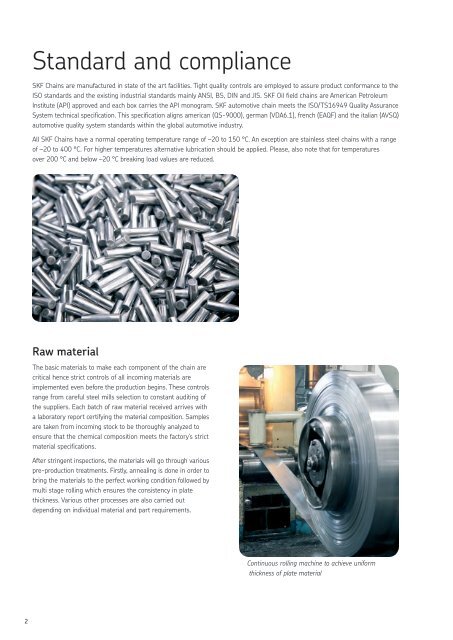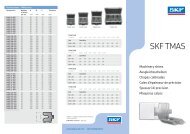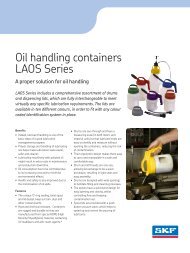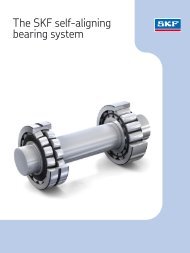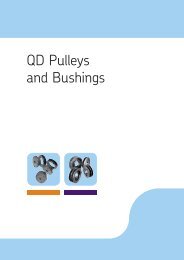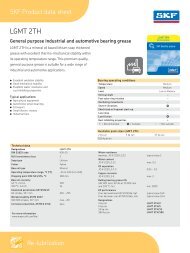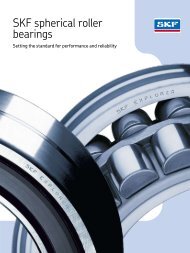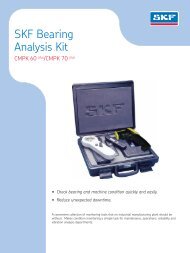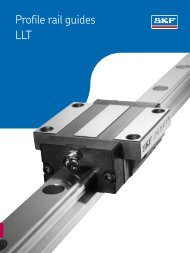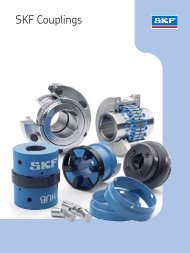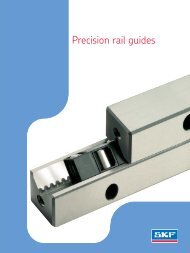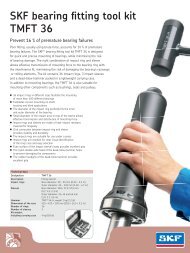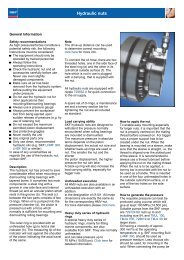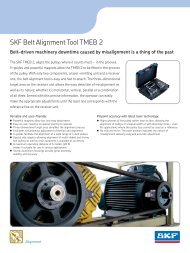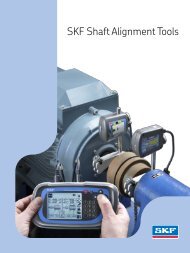SKF Transmission Chain Catalogue - Waikato Bearings
SKF Transmission Chain Catalogue - Waikato Bearings
SKF Transmission Chain Catalogue - Waikato Bearings
You also want an ePaper? Increase the reach of your titles
YUMPU automatically turns print PDFs into web optimized ePapers that Google loves.
Standard and compliance<br />
<strong>SKF</strong> <strong>Chain</strong>s are manufactured in state of the art facilities. Tight quality controls are employed to assure product conformance to the<br />
ISO standards and the existing industrial standards mainly ANSI, BS, DIN and JIS. <strong>SKF</strong> Oil field chains are American Petroleum<br />
Institute (API) approved and each box carries the API monogram. <strong>SKF</strong> automotive chain meets the ISO/TS16949 Quality Assurance<br />
System technical specification. This specification aligns american (QS-9000), german (VDA6.1), french (EAQF) and the italian (AVSQ)<br />
automotive quality system standards within the global automotive industry.<br />
All <strong>SKF</strong> <strong>Chain</strong>s have a normal operating temperature range of –20 to 150 °C. An exception are stainless steel chains with a range<br />
of –20 to 400 °C. For higher temperatures alternative lubrication should be applied. Please, also note that for temperatures<br />
over 200 °C and below –20 °C breaking load values are reduced.<br />
Raw material<br />
The basic materials to make each component of the chain are<br />
critical hence strict controls of all incoming materials are<br />
implemented even before the production begins. These controls<br />
range from careful steel mills selection to constant auditing of<br />
the suppliers. Each batch of raw material received arrives with<br />
a laboratory report certifying the material composition. Samples<br />
are taken from incoming stock to be thoroughly analyzed to<br />
ensure that the chemical composition meets the factory’s strict<br />
material specifications.<br />
After stringent inspections, the materials will go through various<br />
pre-production treatments. Firstly, annealing is done in order to<br />
bring the materials to the perfect working condition followed by<br />
multi stage rolling which ensures the consistency in plate<br />
thickness. Various other processes are also carried out<br />
depending on individual material and part requirements.<br />
Continuous rolling machine to achieve uniform<br />
thickness of plate material<br />
2


